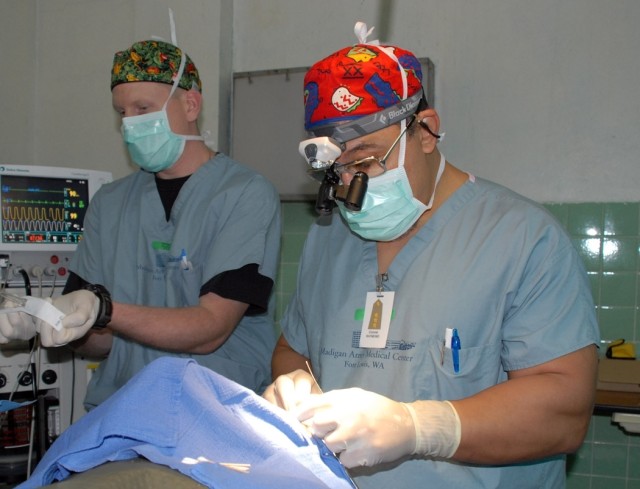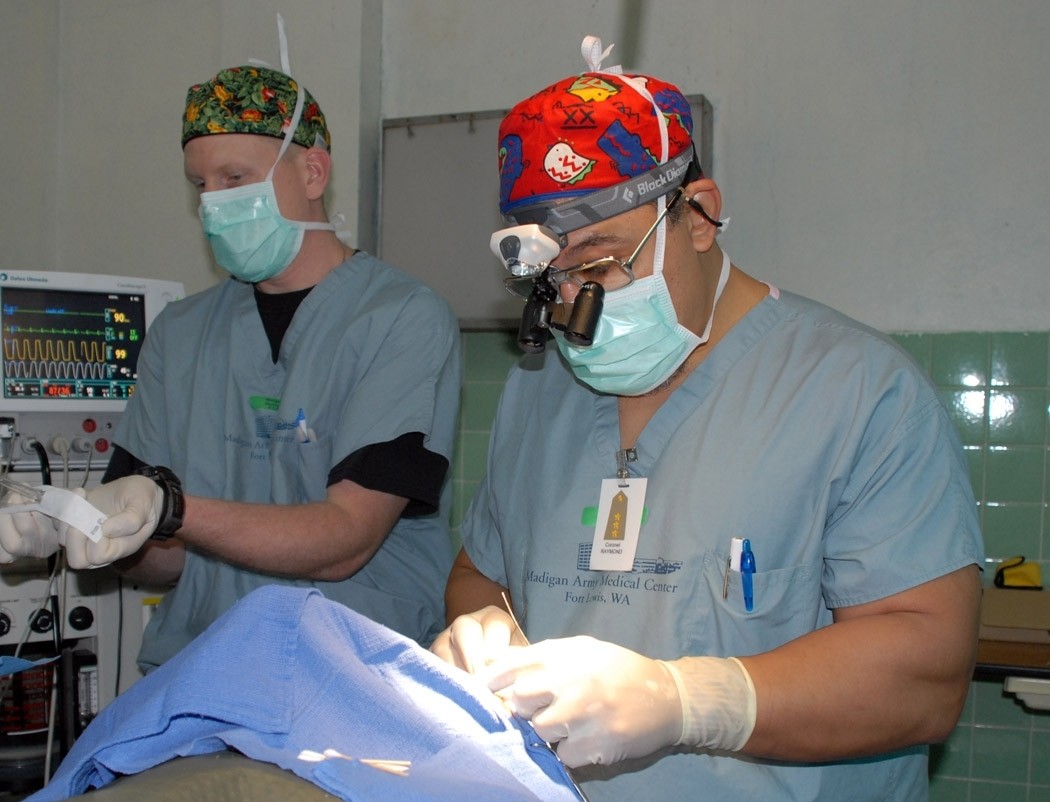
SOTO CANO AIR BASE, Honduras (Army News Service, Feb. 1, 2008) - A U.S. military medical team has performed more than 170 eye surgeries and restored sight to many people who hadn't seen in years at Hospital del Sur, Choluteca, Honduras as part of a Medical Readiness Education and Training Exercise.
The 18-person Western Regional Medical Command Humanitarian Civic Assistance Eye Surgical Team has been performing a real-world readiness training mission for three weeks while conducting ophthalmic surgery for the needy here.
Managed by U.S. SOUTHCOM since 1989, the MEDRETE program is one of the primary U.S. engagement efforts in the region. American military healthcare personnel care for thousands of people, many of whom may not have had medical care in years, while gaining invaluable experience and developing their skills.
"The team examined more than 600 people from a 500 square mile radius in the southwest region of Honduras, selecting the worst cases from the poorest of the poor for treatment," said Dr. (Col.) Darryl Ainbinder, eye-surgical-team chief.
Ainbinder said MEDRETE not only assists the local population by providing medical care, but also enhances relations between the U.S. military and host nations by positively impacting regional medical infrastructures.
He said many of the operations have removed cataracts, but that a large percentage of the eye problems treated are result of injury, such as a 6 year-old boy who suffered a significant hemorrhage in the anterior chamber of the eye due to a dog bite.
Ainbinder added that many other patients suffer from the results of systemic illnesses such as Vitamin K deficiency or toxoplasmosis-illnesses that can often be avoided through education and prevention.
"Many of our patients have strabismus (crossed eyes) a birth defect related to systemic prenatal health deficiencies, but identification and treatment empowers the family with the knowledge of what caused the problem in the first place," he said. "Once people are aware of prevention efforts, there is an awareness of the future gained that will last a lifetime."
"It's very satisfying to know how much good we are doing," said Dr. William Raymond, an ophthalmologist specializing in correcting "crossed eyes," as he accompanied a nine-year-old boy from the operating room to recovery. "We work all day long, seven days a week for a month. We do so much good in such a short amount of time...it's very gratifying." A retired colonel and staff-member at Madigan Army Hospital at Ft. Lewis, Wash., Raymond has participated in MEDRETEs annually for the last five years.
This MEDRETE is involving Hondurans medical practitioners as well as American military doctors, and is training local hospital staff in community education on the prevention of systemic illnesses.
"We work closely with the local public health professionals, very capable but overwhelmed local ophthalmologists, for follow up care, and we also provide patient evaluations and reports to local pediatricians," Ainbinder said.
"Hopefully our 'Train the Trainer' education program will have a lasting effect on community health initiatives, and educate the locals who go out and teach water purification to prevent pediatric diarrhea and proper food handling techniques to prevent Toxoplasmosis," he added.
(Tech. Sgt William Farrow serves with the Joint Task Force-Bravo Public Affairs Office.)

Social Sharing